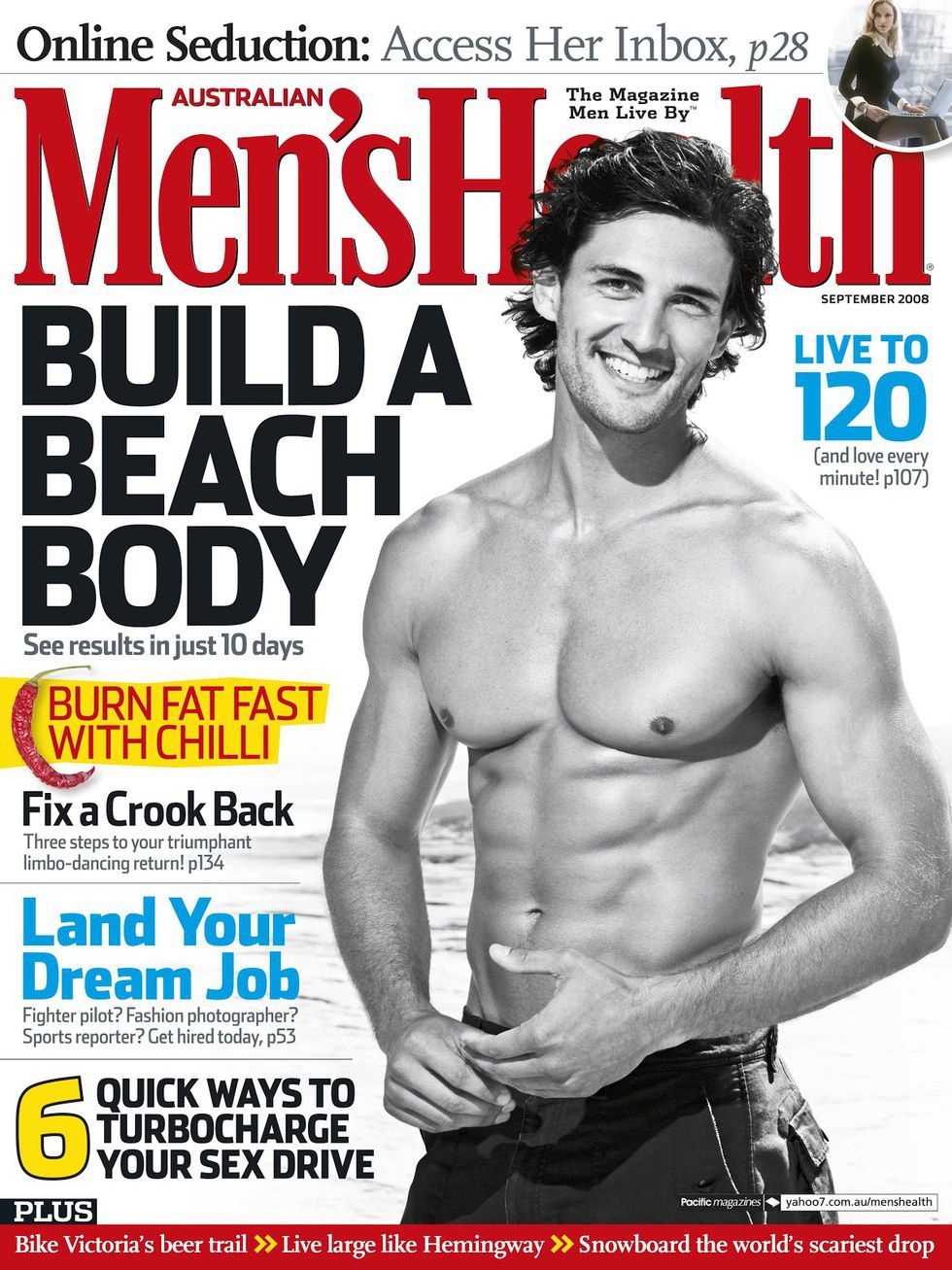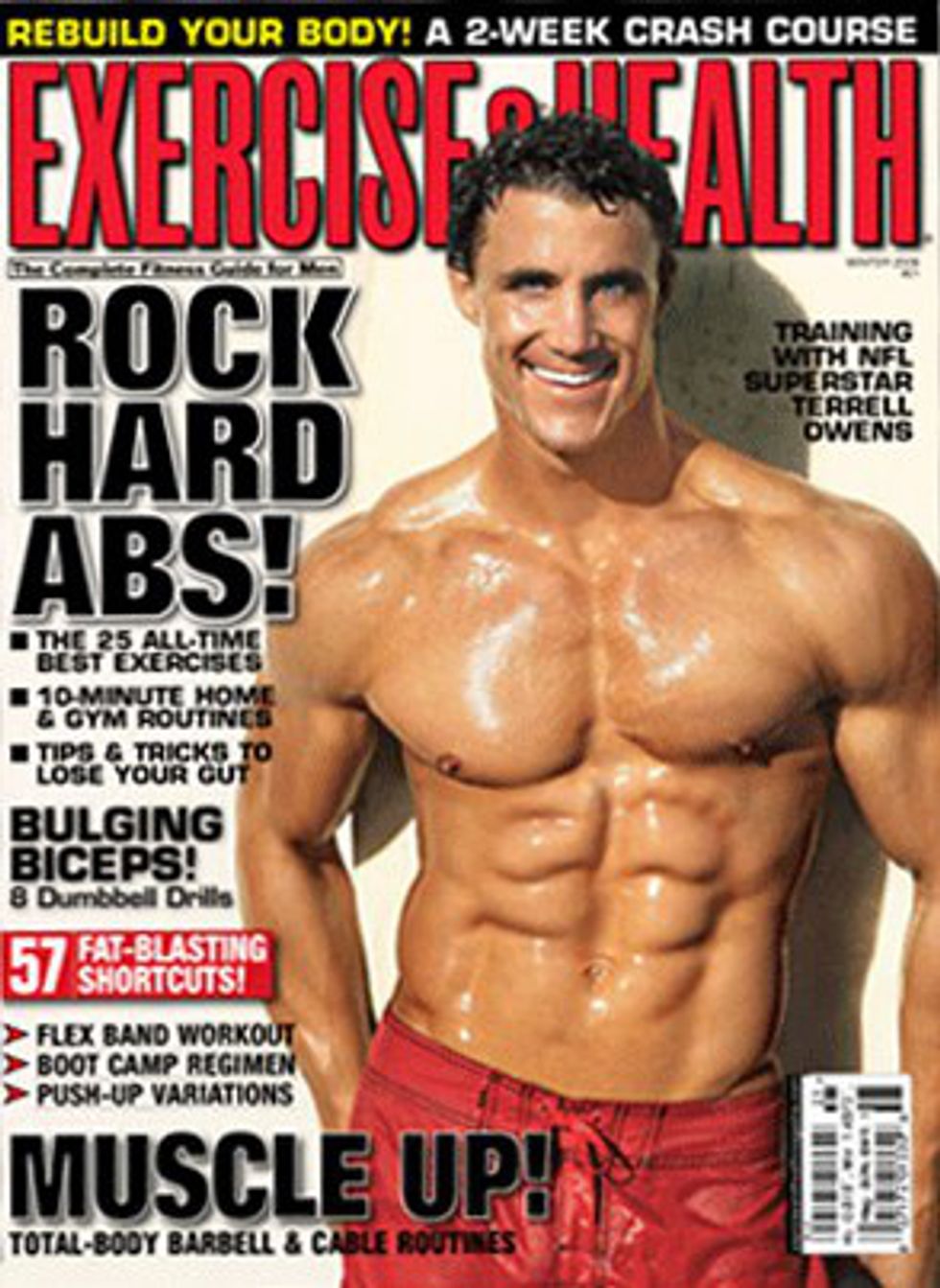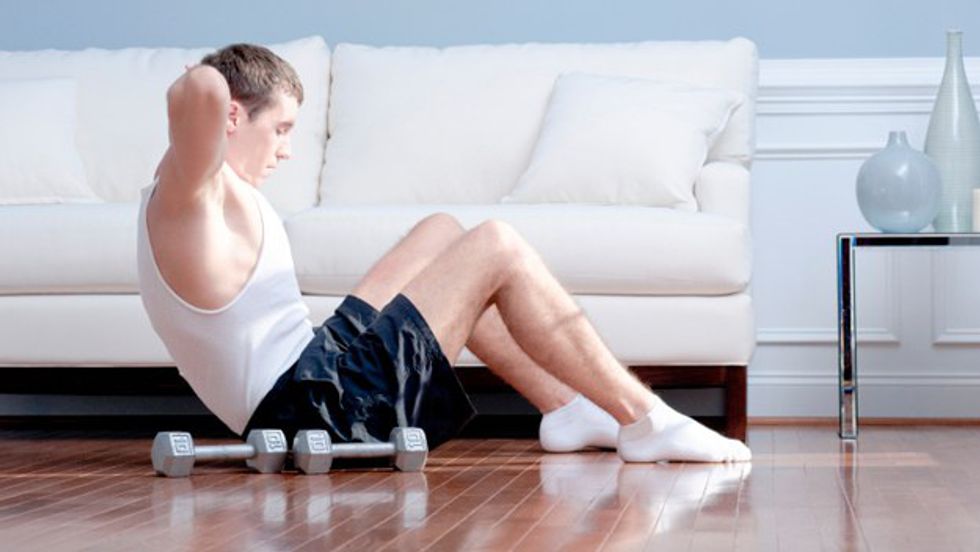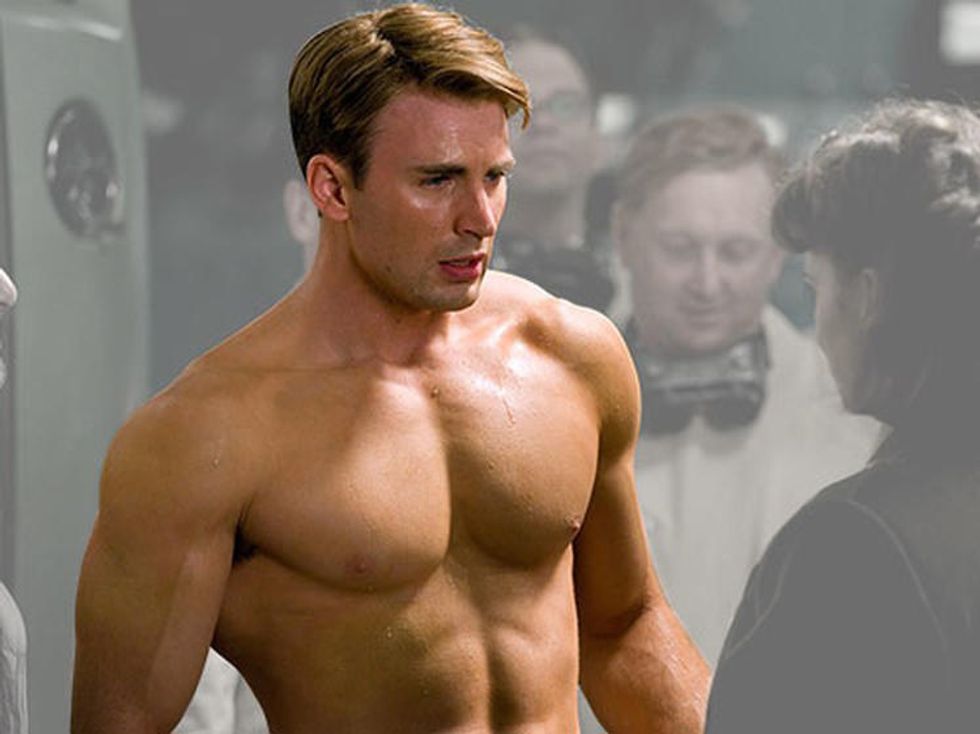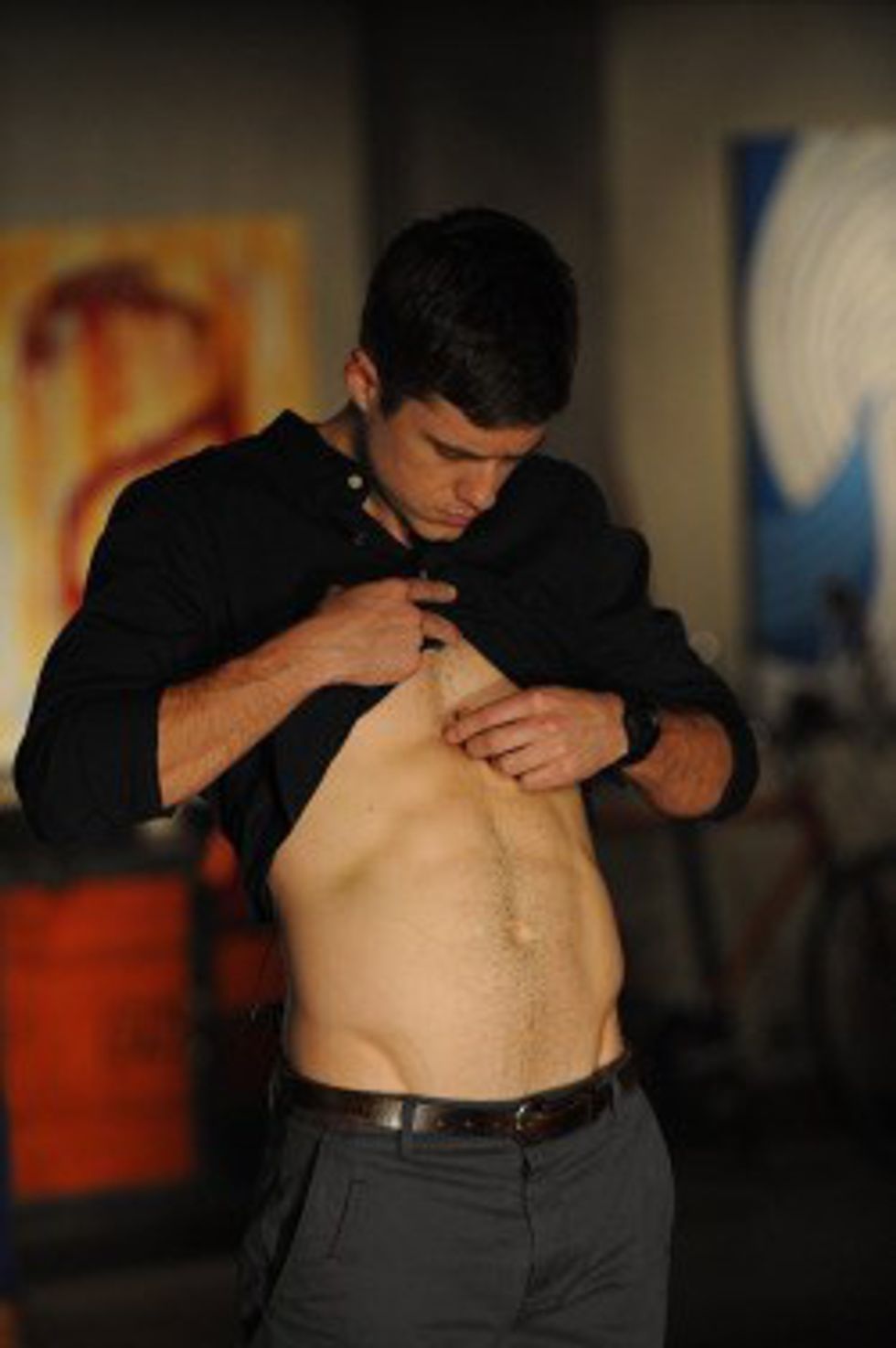Growing up with parents who both coached various sports, an active lifestyle came naturally in my family. The kids all played sports before we each found our respective niche, and we were always practicing, heading to games and on the move alongside school and all our other activities.
But around the start of of middle school, I began to become more aware of my body. I started to think more closely about what/how much I was eating, when I was exercising and how much downtime I was taking. Seemingly, it was nothing out of the ordinary. It's something I should do anyway, I thought. Then, when all the guys in my class started to go the gym, I joined in. But it quickly became apparent that, for all the sports I participated in, pumping iron did not come naturally to me.
Compounding these issues was the media's portrayal of the male body that I was exposed to in my everyday life, even more so for me because of my affinity for super heroes and action movies. The images were everywhere: sculpted torsos and abs. Huge biceps. Square jaws. Perfectly-tanned skin.
Nothing was or is wrong with any of this, per se. And my pubescent-brain thought that the encouragement to "get ripped" was a good thing, something to aspire to and hopefully achieve one day. So at the ripe age of 14, I made it my goal to be in the same shape as a male supermodel before I graduated high school. With all the sports I did, with swimming chiefly among them, it would be a piece of cake. Or so I thought.
By the time senior year ended, despite all of my "hard work," I didn't even come close. My torso was flat and my abs hidden beneath layers of fat. My biceps were undefined. My jaw was nothing spectacular. My skin was pale and acne-covered. The same thoughts and questions would systematically flow through my mind:
What am I doing wrong?
Your accomplishments don't mean anything because you look like sh*t.
Better hope someone likes you for your personality and not your looks.
Will I ever be comfortable in my own skin?
The worst part was that I never told anyone about my thoughts. I often wore long sleeves and sweaters to hide my body fat. I changed in the bathroom stall instead of in the locker room out fear of being taunted by my teammates (most of whom, at a young age, had fantastic physiques). I looked in mirrors as rarely as possible.
And I am not alone. Millions of American men experience these types of thoughts and feelings as well. So what's the solution?
When discussing body stereotypes, many assume it is a problem that only women can possibly have. Those stereotypes of beauty and health certainly exist for them. Sadly, body image issues extend to men as well. A Huffington Post article offers an accurate summation:
Despite public perception, body image issues and eating disorders are not exclusively female problems. The oft-cited figure is that about 1 in 10 eating disorders occur in males, but according to Raymond Lemberg, an Arizona clinical psychologist and expert in the area, newer research suggests that the real ratio is probably closer to 1 in 4. It wasn’t until Harrison Pope, a professor of psychiatry at Harvard Medical School, published his seminal work around muscle dysmorphia, an obsession with bulking up also known as “reverse anorexia,” in the late 1990s that researchers in the field began to pay attention to boys.
This means that the issue starts younger and occurs more often than previously estimated. And as it was with me, neither the media nor the men to whom they market are typically vocal about it. In the magazines, movies, TV shows, and video games, success goes hand-in-hand with beauty (*ahem* I mean "handsomeness"). The hero. The lover. Even the "bad boy." All beautiful, well-dressed, and manipulated to perfection. That puts the rest of us in a unique position.
For me, as a consumer of the aforementioned media, my number one recurring thought was always I am the ugliest person I know. And even if I or another person believes this with all their heart and soul, logically it makes no sense. As Shakespeare so eloquently wrote in Love's Labours Lost back in 1588, "Beauty is bought by judgement of the eye." Like smell and sound, sight is a perception. Looks are relative. What one person finds appealing in art, color, shape, or human form, another does not. And that's all fine. There is no binary right and wrong when it comes to looks, especially the looks of men and women.
But what is more difficult for most men is that we each know real-life people who really do look like the muscle-bound magazine models. It isn't just a media portrayal, it's the real deal. So how can I justify my poor looks when my neighbor is jacked? guys think to themselves. This creates a dual-sided issue.
On one hand, out of frustration and self-deprecation, people demonize those who have a combination of good genes, solid work ethic, and access to top-notch workout routines and dietary plans. People who work hard or have active metabolisms shouldn't be mocked for being "conceded" or "arrogant" for being proud of their bodies. Human beings are innately selfish, so if we don't know someone, we make assumptions about people's attitudes based on their features and tear them down to make ourselves feel better.
On the other hand, which is more common, those who are out of shape, regardless if they're making efforts to improve or not, are mocked, ostracized, made to feel insignificant. I witnessed this countless times throughout school and prayed that I would never be the product of that kind of treatment for the way I looked. Someone who is battling weight or self-image issues doesn't need to be reminded of what they see and live every single day.
Both types of behavior are wrong. While no one should be shamed for not being "in-shape," no one should be shamed for being "in-shape" either. For innumerable reasons that have nothing to do with diet and exercise, a person's body grows and arranges itself in ways that aren't cookie-cutter and fitting of the norm. And everyone's progress is their own.
With all the information, studies, and technology available today, it
is up to the informed health/fitness community to educate all people on
what it means to be
healthy in every sense of the word, not just outside our bodies but inside as
well. We can all take steps to assure that we live the healthiest lives
possible, but if that doesn't end in having a beach bod, that's okay.
But what does that mean for the average Joe? What is the answer to all these questions and issues regarding body images?
Talk to your doctor.
Yeah, that's not an original line by any means. But really. Men (and really, all humans) should speak one-on-one with a health professional about specific health goals for their individual body. Not the body of Chris Evans. Or Aaron Tveit. Your body.
Recently, I had to get a physical before I could start my new job. For obvious reasons, I always dread having to undress in front of a doctor, with nothing to hide or conceal my shame. But after getting on the scale, going through the motions, and getting all the tests analyzed, the doctor told me I was in "great shape."
Great shape? I thought. Is he looking at the same person?
But as I stated previously, we need to put our trust in the professionals, not ourselves, both for the bad AND good facts and suggestions about our health.
I am currently on a consistent fitness routine/diet plan put together by my good friend and fitness trainer, Mike Medina (shameless plug: learn more about his programs here). It's the first time in my life that I have had a personalized, structured plan that fits my goals and capabilities. And while I won't be posing for Men's Health anytime soon, I'm slowly building confidence that is translating into other areas of my life. I'm working towards being healthy, but the thought of not being "perfect" yet isn't daunting to me anymore. I am excited about getting in shape, encouraging myself to do better and improve in a way that doesn't belittle or diminish my efforts.
At the end of the day, we have to live with ourselves and others, to work and grow in the world, to pursue our passions and dreams. Being obsessed with physicality is damaging and not conducive to healthy, happy living. Men are typically the ones who don't "talk about our feelings." But getting the facts about personal health from professionals liberates men from the inner voices that cause doubt and disappointment.
So run on out there. Go workout. Get swole. But on your way out, take a minute to look in the mirror and smile at the beautiful man you are.




